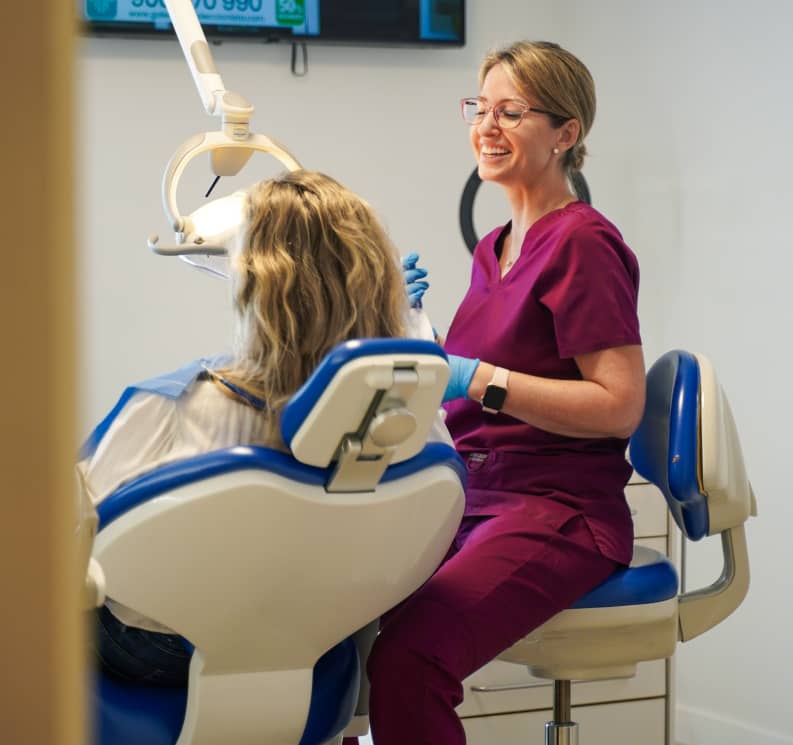Endodontics or root canal treatment
Do you want to solve your dental or facial problem?
Ask us for an appointment with free check-up and diagnosis
Whether you want to start treatment or request information, you are in the right place. Leave us your details and we will contact you within three hours.

What is endodontics?
Phases of endodontics
Root canal treatment is a surgical technique within conservative dentistry that removes infected tissue (pulpitis) from the dental pulp, i.e. the innermost part of the tooth. When the dentist, by carrying out various tests, has diagnosed that the cause of the symptoms mentioned at the beginning is this pulpitis, he or she will prescribe endodontics as a preventive measure against the advance of the infection that could affect the surrounding tissues. The steps of the endodontic procedure are as follows.
At this stage local anaesthesia or conscious sedation is applied depending on the stress the operation may cause the patient.
To isolate and treat the tooth it will also be necessary to remove nearby caries and defective fillings if there are any.
It consists of filling the canal and replacing the pulp tissues to avoid a new infectious process in the future.










